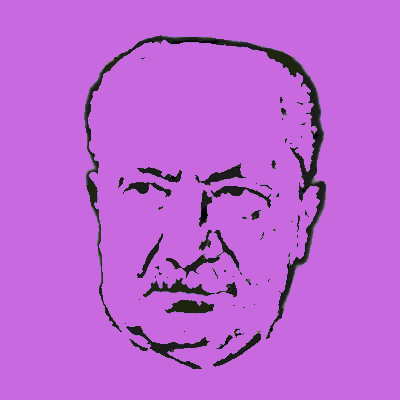Hacia una reivindicación de la espacialidad como factor determinante y fundacional de la estructura del Dasein
Contenido principal del artículo
Resumen
En este trabajo nos introduciremos en algunos escritos y cursos de Martin Heidegger del período de Marburgo (1923-1928) para examinar la noción de espacialidad (Räumlichkeit) en su sentido existencial. A propósito, pretendemos dilucidar la función metodológica que cumple esta noción en la estructura del Dasein. Con esta intención, analizaremos ciertos datos que nos llevan a advertir que en la “analítica existencial” hay una fuerte tendencia a exponer la cuestión en clave topológica. Pues bien, la caracterización que el filósofo ofrece del hombre, el mundo y el sentido de lo dado invitan a descubrir al ser en una modalidad y contenido puntuales de manifestación que refieren al plano sensible y refuerzan su carácter situacional.
Descargas
Detalles del artículo

Esta obra está bajo una licencia internacional Creative Commons Atribución-NoComercial-SinDerivadas 4.0.
Los autores mantienen la Propiedad de los Derechos de Autor y Derechos de Reproducción.
Los autores/as pueden realizar otros acuerdos contractuales independientes y adicionales para la distribución no exclusiva de la versión del artículo publicado en esta revista (p. ej., incluirlo en un repositorio institucional o publicarlo en un libro) siempre que indiquen claramente que el trabajo se publicó por primera vez en esta revista.
Se permite y recomienda a los autores/as a publicar su trabajo en Internet (por ejemplo en páginas institucionales o personales) posterior al proceso de revisión y publicación, ya que puede conducir a intercambios productivos y a una mayor y más rápida difusión del trabajo publicado.
Citas
Aristóteles: Física, Madrid: Gredos, 1995.
Blattner, W.: Heidegger’s temporal idelism, New York: Cambridge University Press, 1999.
Crowell, S., Malpas, J. (eds.): Transcendental Heidegger, California: Stanford University Press, 2007.
Dastur, F.: Heidegger y la cuestión del tiempo, Buenos Aires: Del Signo, 2006.
Dreyfus, H.: Ser-en-el-mundo. Comentario a la división I de Ser y Tiempo de Martín
Heidegger, Santiago de Chile: Cuatro Vientos Editorial, 1996.
Heidegger, M.: Unterwegs zur Sprache, GA 12, Frankfurt am Main: Vittorio Klostermann,
[Trad. De camino al habla, trad. Yves Zimmermann, Barcelona: Serbal, 1987.]
Heidegger, M.: Prolegomena zur Geschichte des Zeitbegriffs, GA 20, Frankfurt am Main: Vittorio Klostermann, 1979. [Trad. Prolegómenos para una historia del concepto de tiempo, Madrid: Alianza, 2006.]
Heidegger, M.: Logik. Die Frage nach der Wahrheit, GA 21, Frankfurt am Main: Vittorio
Klostermann, 1976. [Trad. Lógica. La pregunta por la verdad, Madrid: Alianza, 2004.]
Heidegger, M.: Die Grundprobleme der Phänomenologie, GA 24, Frankfurt am Main: Vittorio Klostermann, 1989. [Trad. Los problemas fundamentales de la fenomenología 1927, Madrid: Trotta, 2000.]
Heidegger, M.: Die Grundbegriffe der Metaphysik. Welt-Endlinchkeit-Einsamkeit, GA 29/30, Frankfurt am Main: Vittorio Klostermann, 1992. [Trad. Los conceptos fundamentales de la metafísica. Mundo, finitud, soledad, Madrid: Alianza, 2007.]
Heidegger, M.: Beiträge zur Philosophie (Vom Ereignis), GA 65, Frankfurt am Main: Vittorio Klostermann, 1994. [Trad. Aportes a la filosofía. Acerca del evento, trad. Dina Picotti, Buenos Aires: Almagesto-Biblos, 2003.)
Heidegger, M.: Sein und Zeit, Tübingen: Max Niemeyer Verlag, 1960. [Trad. Ser y tiempo, Chile: Universitaria, 1997]
Husserl, E.: Ideen zu einen reinen Phänomenologie und phänomenologischen Philosophie. Zweites Buch: Phänomenologische Untersuchungen zur Konstitution, The Hague: Martinus Nijhoff, 1952.
Malpas, J.: Heidegger’s Topology. Being, Place, World, Cambridge: The MIT Press, 2006. Merleau-Ponty, M.: Phénoménologie de la perception, Paris: Gallimard, 1945.
Rocha de la Torre, A.: “El concepto de cercanía en Martin Heidegger”, Eidos, N° 7, 2007, pp. 48-86.
Rodríguez, R.: Fenómeno e interpretación. Ensayos de fenomenología hermenéutica, Madrid: Tecnos, 2015.
Quenaya Mendoza, C.: “De Aristóteles a Heidegger un recorrido del lugar a la espacialidad del Dasein”, Phainomenon, Vol. 11, N° 1, 2012, pp. 63-69.
Vigo, A.: Arqueología y aleteiología, Buenos Aires: Biblos, 2008.
Volpi, F.: Heidegger y Aristóteles, Buenos Aires: FCE, 2012.

